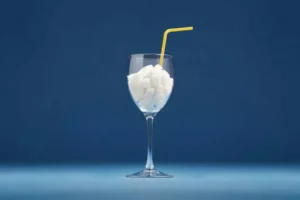If you’re concerned about someone drinking underage, talk to them openly and provide alternatives. Underage drinking occurs when a person consumes alcohol before the legal drinking age of 21 in the United States. BetterHelp can connect you to an addiction and mental health counselor.
Short Takes with NIAAA: How Does Alcohol Affect the Adolescent Brain?
- Remember that as a parent, your child is much more likely to mimic your actions than listen to your words.
- When your teen abuses alcohol, it’s easy to judge yourself or negatively compare your family to others.
- It is a mistaken notion to assume that children and adolescents are simply miniature versions of adults.
- Car accidents and drink driving are a leading cause of death for young adults.
Witnessing your child struggle with a drinking problem (also known as “alcohol use disorder”) can be as heartbreaking as it is frustrating. Your teen may be falling behind at school, disrupting family life, and even stealing money to finance their habit or getting into legal difficulties. Drinking problems affect families all over the world from every different background.
New ESPN Documentary Brings Attention to Teen Substance Abuse
For example, research demonstrates that the Internet and advertising, including that which occurs on social media, promote drinking behaviors in teenagers. Co-use of multiple substances may influence the relationship between alcohol use and neural integrity. If your teen struggles with drinking, you may find that they’re not the same person they once were. It can be scary to discover that your teen drinks alcohol in any amount.
Warning Signs of Underage Drinking
In addition, the decrease in underage drinking rates hasstalledsince 2015. Overall, as of the most recent data available about underage drinking statistics in 2017,19.7%of all underage people aged 12 to 20 reported drinking in the past 30 days. Among children aged 12 to 17, nearly10%have used alcohol in the past month. Underage drinkers are more likely to be arrested for disorderly conduct, drunk driving, assault, and vandalism. Even if the younger person manages to get their alcohol use under control, the legal consequences of underage drinking can be life-long problems.
Top Alcohol and Teens Related Articles
- A large cup of beer, an overpoured glass of wine, or a single mixed drink could contain much more alcohol than a standard drink.
- You know the dangerous effects of alcohol on teens, so don’t ignore the situation if your teen shows signs of alcohol addiction.
- It’s never too late to get help, but the earlier you reach out, the better.
Working on developing boundaries and the ability to say no in uncomfortable situations can help your child deal with peer pressure and resist the need to drink. https://ecosoberhouse.com/article/13-common-myths-about-addiction-and-recovery/ For more information about alcohol’s effects on the body, please see the NIAAA Interactive Body. The Substance Abuse and Mental Health Services Administration (SAMHSA) provides the most reliable estimates of alcohol use by young people in the United States.
Teens and Alcohol
Symptoms can include learning and memory challenges, and difficulties with balance. The consequences teenage alcoholism of underage drinking can affect everyone—regardless of age or drinking status. Alcohol is the most widely used substance among America’s youth and can cause them enormous health and safety risks. It’s OK to stay away from drugs and alcohol if they negatively affect you or if you’re simply not interested in trying them.




